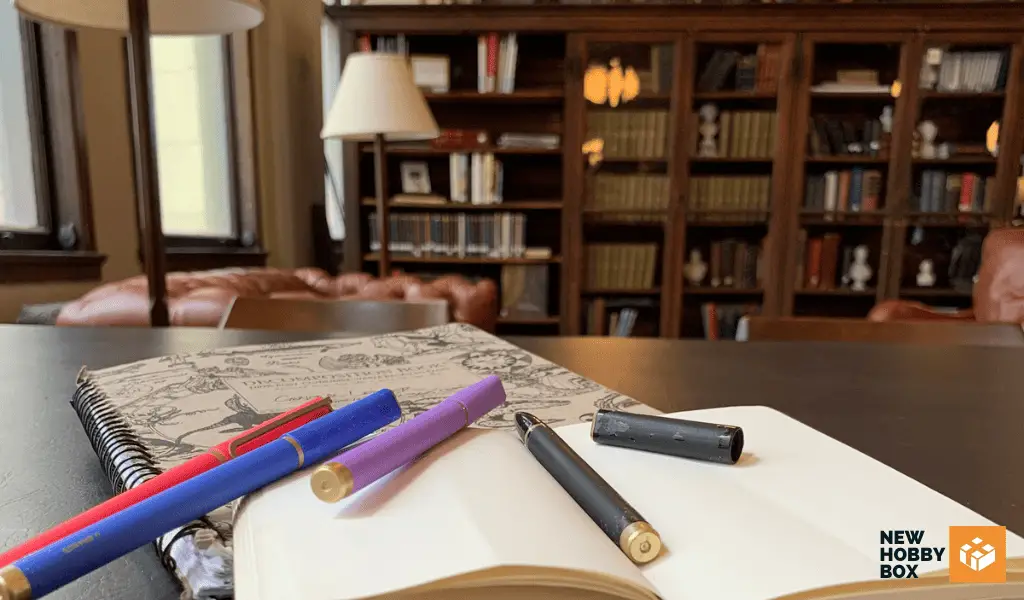
Let’s start with a blank canvas. We’ve all found ourselves doodling on scraps of paper during a call or a long meeting. This little act of creation, while often mindless, hints at an intrinsic human tendency: in simpler words, we all love to express, create, and imagine. Although it’s hardwired into each of our minds, it raises an interesting question: is drawing a hobby?
Yes, drawing can be a hobby as it’s a leisure activity pursued for pleasure. Drawing fuels creativity, allowing hobbyists to express ideas visually. Being an easily accessible activity, drawing has become a popular hobby among people of all ages.
This article will show you why drawing is a hobby, exploring its many facets, and how it’s a mode of self-expression and therapeutic activity. Along the way, we’ll unravel why it appeals to our primal instinct to create and document our existence, and how it brings beauty to even the most mundane corners of everyday life. So, grab your sketchpad, and let’s decode drawing as a hobby together.
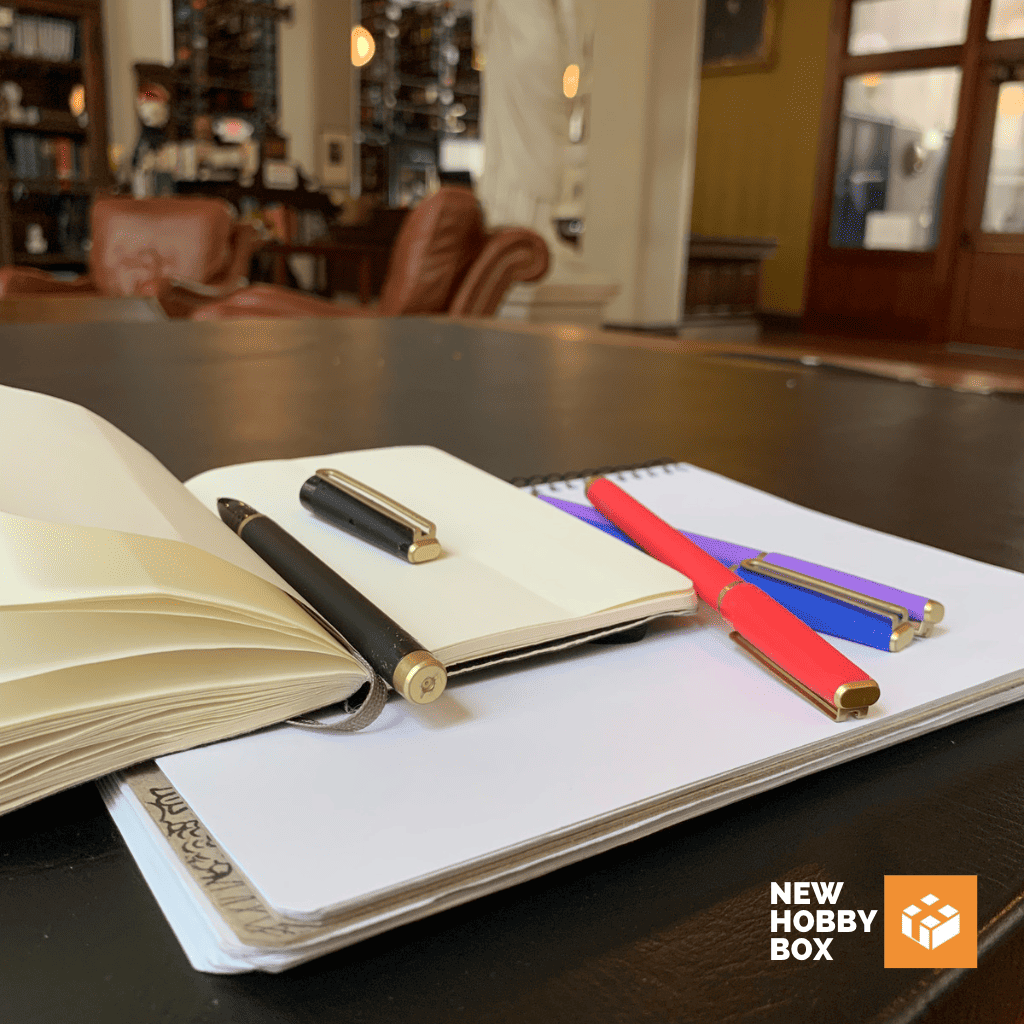
THE ART OF DRAWING: IS IT A HOBBY, AN ART, OR BOTH?
Classifying drawing as a hobby isn’t as black-and-white as it seems. Drawing, in its various forms, transcends the boundaries of a simple pastime, in its most primitive form it serves as communication, but at its highest level of function, it can yield therapeutic results, and even professional artistry. To know the difference, you have to understand the essence of drawing – that’s the only way to appreciate its ability to help you grow personally and bring about greater fulfillment as a hobby.
The Essence of Hobbies
First things first, let’s level set on what a hobby is. Most people confuse hobbies with skills, which are completely different things, but at their heart, hobbies are just things we do for fun. They’re delightful detours from our day-to-day lives, providing a zen zone for the mind. No deadlines, no pressure – just impulse and joy. We’re not trying to win any medals or climb corporate ladders here.
The real win is in the doing, in the simple pleasure it brings.
Hobbies come in all shapes and sizes, from making candles to learning how to pick locks (yes that’s a real hobby, so long as you aren’t doing it for illegal purposes…) And it doesn’t take a lot of imagination to think there are endless hobby possibilities in between those two.
But all hobbies share a few things in common.
- Pleasure: First, they’re fun, they are activities done purely because you enjoy them.
- Creative Outlet: Second, they’re a sweet release, letting us express our interests and passions. This scratches any sort of creative itch you may have.
- Improvement: And finally, they’re a bit like riding a bike – the more you do it, the better you get.
So, where does drawing fit in all this? Whether you’re curled up in your favorite chair, or doodling away on a sketchpad. Or maybe you’re sketching a scene from your garden, or perhaps it’s a far-out fantasy creature. The point is, you’re not doing it for a grade or a promotion. You’re doing it because it’s fun, it’s relaxing, and it lets your imagination run wild. Like other hobbies, drawing helps you get better with each stroke and scribble. So yes, drawing ticks all the hobby boxes, with the bonus of turning you into a budding artist. It’s not about trying to become the next Da Vinci either – the beauty of hobbies is that they’re all about the journey, not the destination!
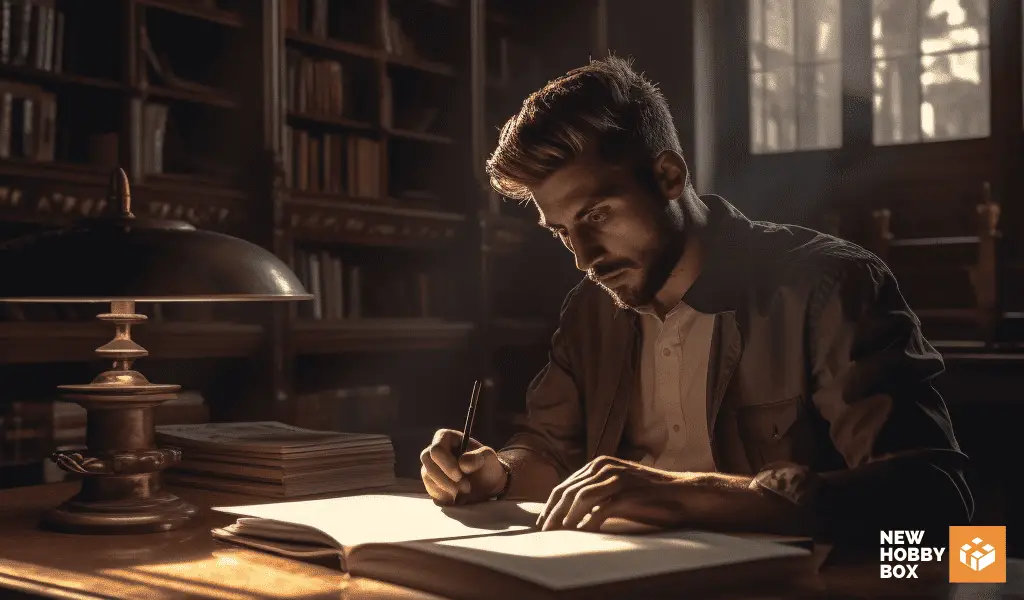
Unraveling the Art of Sketching and Drawing
Drawing is more than just putting pencil to paper. It’s an act of expression, a personal language without words. It’s a dance between the hand and the eye, translating the world as we see it or imagine it into visible forms. It’s simple but there are nuances to it that can make it profoundly complex too – the pressure of your pencil, the stroke of your line, and the shade of your sketch, all contribute to your final masterpiece.
Drawing has been part of our narrative for thousands of years. From prehistoric cave sketches to grand Renaissance frescoes, drawing has evolved alongside humanity, acting as a visual diary of our collective journey. From pictographs and iconography, which we’ve discussed in great detail throughout the New Hobby Box calligraphy guides, it’s served as a tool of communication, a medium for storytelling, and a platform for creative expression, its purpose, and style changing with the ebb and flow of time.
You may have noticed that we’ve struggled to pinpoint one word to define the concept throughout this article – be it sketching or drawing. And that’s because it can take so many forms. These are blanket definitions, but perhaps more specific would be the following:
- Drawing: The act of creating pictures or designs by making marks on a surface, typically using pencils, pens, or other artistic tools.
- Sketching: A form of drawing characterized by quick, loose, and often unfinished lines or strokes, used to capture the essence or basic structure of an object or scene.
- Doodling: The spontaneous and often unconscious act of drawing or scribbling aimlessly, often done while engaged in other activities, such as listening to a lecture or talking on the phone.
- Architectural Drawings: Precise and detailed drawings created by architects to visually communicate the design and specifications of buildings, structures, or spaces.
- Professional Drawings: Highly skilled and refined artworks created by professional artists, often exhibiting technical expertise, artistic mastery, and a high level of aesthetic value.
From casual to professional, drawing holds space for all, offering a canvas to express, explore, and enjoy. What if you’re good at drawing in any of its definitions, is it a talent then?
IS DRAWING A HOBBY OR TALENT?
Drawing can be both a hobby and a talent. While talent can enhance one’s drawing skills, practice nurtures these abilities, transforming drawing into a rewarding hobby. The process helps develop creativity and artistic expression.
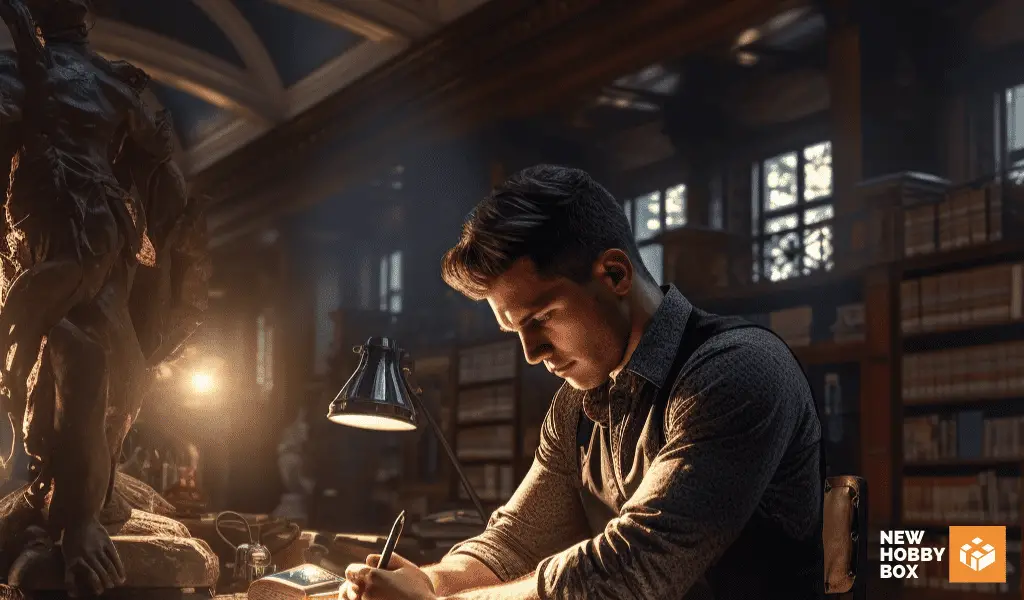
WHAT ARE THE BENEFITS OF DRAWING AS A HOBBY?
Drawing as a hobby yields significant benefits including cognitive development and relaxation. It sparks creativity, facilitates problem-solving skills, and offers a therapeutic channel for self-expression, contributing to emotional well-being.
Drawing as a hobby has a ton of perks – not only does it help your brain grow while helping you relax, but it also lets your imagination run wild. There are so many amazing benefits that everyone can enjoy, but here are 7 reasons why you should start sketching today.
1. Self-Expression:
Sketching, drawing, doodling – whatever you want to call it, it’s more than scribbling on a piece of paper when you’re bored. It’s a way to express your deepest emotions and thoughts. You can tell a whole story through your drawings, letting others peek into your world, your mind, and your heart.
2. Instinctive Creation:
Drawing also tickles a primal urge within us: the need to create. It’s instinctive, like a child scribbling on a wall. Every line, every shade, every tiny detail we add is a manifestation of our desire to construct, to shape, to create something uniquely ours.
3. Documenting Life:
Think of sketching as a visual diary. It’s an intimate account of your life – capturing everything from fleeting thoughts to grand experiences. You know those small observations you make throughout the day? A bird perched on a tree branch, the curl of a wave, the way shadows dance on a wall – sketching immortalizes these moments.
4. Curiosity:
The role of drawing in ideation and fostering curiosity – the act of drawing encourages us to see the world from different angles, ask questions, and explore possibilities. It’s about asking ‘What if I draw this?’ or ‘How does this look from another perspective?’.
5. Finding Beauty in the Mundane:
Drawing can even help you find beauty in the most mundane things. That half-eaten apple, the cluster of houses in the distance, or that tangled mess of cables – everything has an interesting side if you’re willing to see it. And drawing? It helps you capture that beauty.
6. Brain Stimulation:
Drawing is a workout for the brain. It’s like a brain gym, stimulating your visualization skills, enhancing focus, and boosting overall cognitive function. It’s not just about creating a piece of art; it’s about sharpening your mind in the process.
7. Relaxation and Therapy:
Don’t forget the therapeutic aspects of drawing. It’s a peaceful escape, a soothing balm for the weary soul. The act of sketching can help you unwind, releasing stress and providing a sense of tranquility. So why not pick up a pencil and start drawing today? You’ll be amazed at where it takes you.

What Are the Benefits of Drawing As a Hobby?
Drawing as a hobby yields significant benefits including cognitive development and relaxation. It sparks creativity, facilitates problem-solving skills, and offers a therapeutic channel for self-expression, contributing to emotional well-being.
POTENTIAL DRAWBACKS OF DRAWING AS A HOBBY
Every hobby comes with its own set of concerns, and drawing is no different. You might worry about the costs of art supplies, the hours needed to hone your skills, or the talent required to produce a masterpiece.
- “Should I spend my money on these materials?”
- “Do I have enough time to practice?”
- “What if I don’t have the artistic flair?”
These are questions that often cast a shadow over one’s desire to take up drawing. Now, let’s address these concerns.
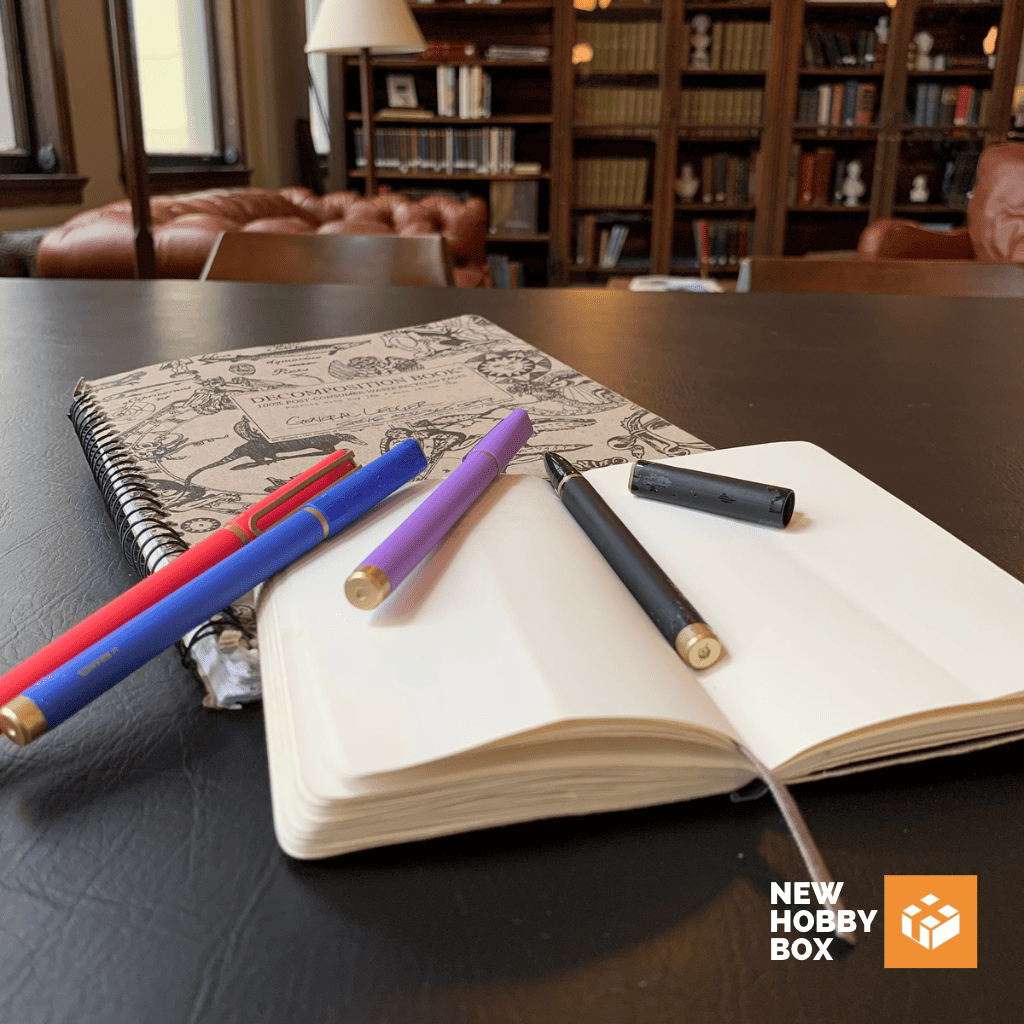
Cost of Materials for Drawing
While it’s true that high-quality supplies can come with a hefty price tag, there’s beauty in starting with the basics. A simple pencil and a piece of paper can become a gateway to endless creations. As art school students, we often engaged in using pens for our sketches. Simple ballpoint pens as you’d find from BIC became our first light layer of sketches, then we would run back over the light sketches to add detail with thicker weight pens. It doesn’t get much more affordable than that, and the low price tag didn’t cheapen the hobby or the beauty either.
But if you decide to go with something more professional, and believe us, some drawing materials can get pricey, you should know that investing in your passion is never a waste, but a step towards personal growth and enjoyment.
Time and Talent Needed for Drawing
The hours you put into sketching aren’t lost; they’re spent cultivating a skill that can provide a lifetime of fulfillment. Think of it this way: every minute spent drawing is a minute spent improving. As for talent, remember that even the great masters were once beginners. Talent can help, but consistent practice is what truly shapes an artist. In other words, you can improve at anything with effort and dedication. We’re big believers in this.
Ultimately, the roadblocks we perceive are often mere speed bumps on our journey to mastering a new hobby. So, don’t let these concerns deter you from exploring the artistic world of drawing. Grab a pencil, start sketching, and let your creative journey unfold. You might be surprised by where it takes you.
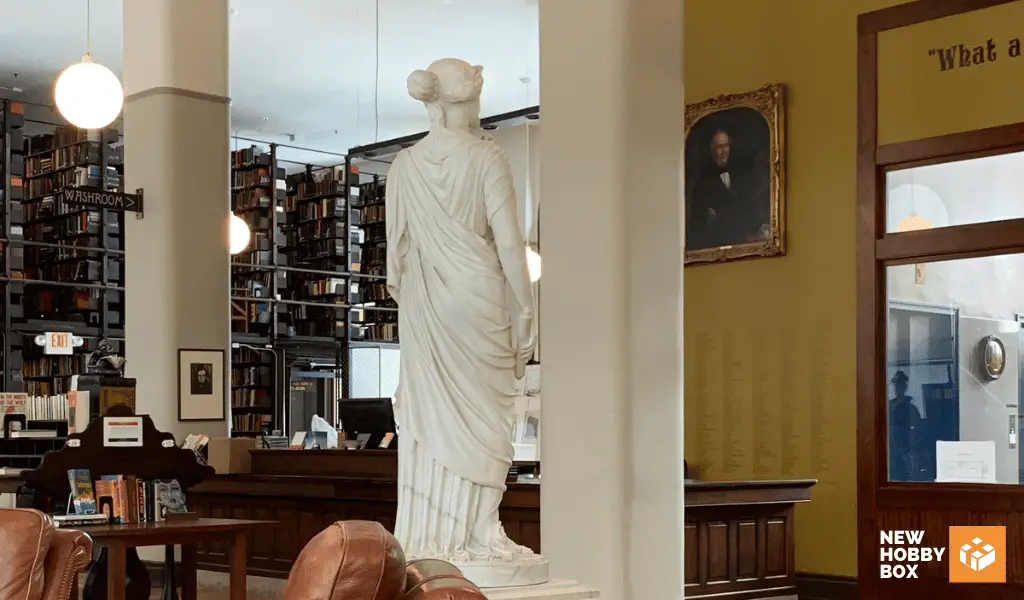
BEGINNING YOUR DRAWING JOURNEY: A STARTER’S GUIDE
If you’re thinking about getting into drawing as a hobby, it might feel a little nerve-wracking at first. It’s like when you try to build a piece of IKEA furniture but the manual is in Swedish or the visual directions just don’t make all that much sense. Don’t let those creativity speedbumps get you down.
Remember, in the drawing world, there’s no such thing as a mistake, only artistic detours. As the great Bob Ross would tell you, it’s just a ‘happy accident’.
Before we go any further, if you’re serious about imrpoving your sketching skills, head over to our short guide on the 5 essential skills to drawing. It’s a mix of solid information with a few tips to help you begin your journey.
Every squiggly line or unexpected doodle is just part of your journey toward your Picasso moment. So don’t hold back, let your pencil waltz around the paper, and remember, you’re not aiming for the ‘Vitruvian Man’ here. The goal is a personal masterpiece that speaks to you. A few things to keep in mind as you get going.
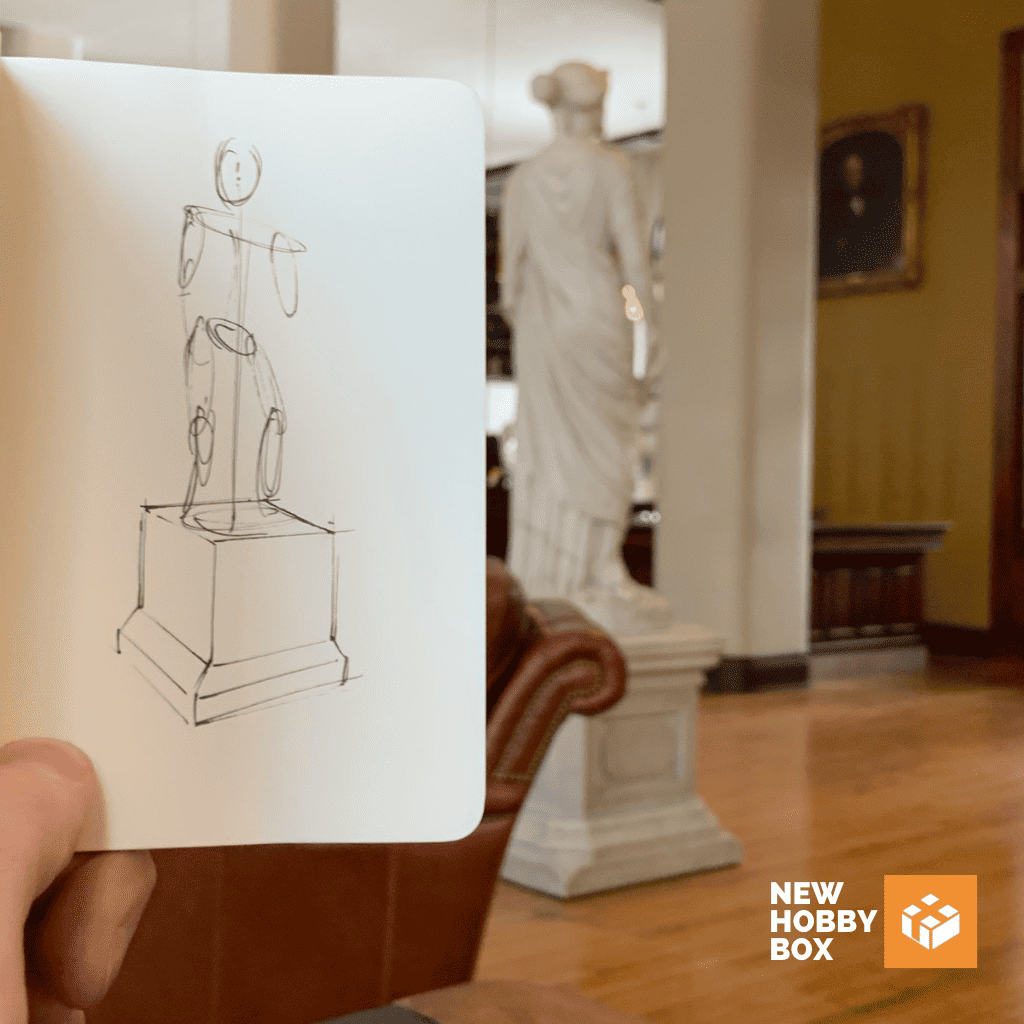
- Hand-Eye Link: No, we’re not talking about playing ‘catch’, though that helps too! When you’re drawing, your brain has to send those all-important messages to your hand, telling it what to draw. Think of it like a game of whispering between your brain, your eyes, and your hand. Practice makes perfect here. Try tracing simple shapes or doing quick sketches of everyday objects. We usually start by drawing very basic shapes to outline the concept or make it into a more organic visual.
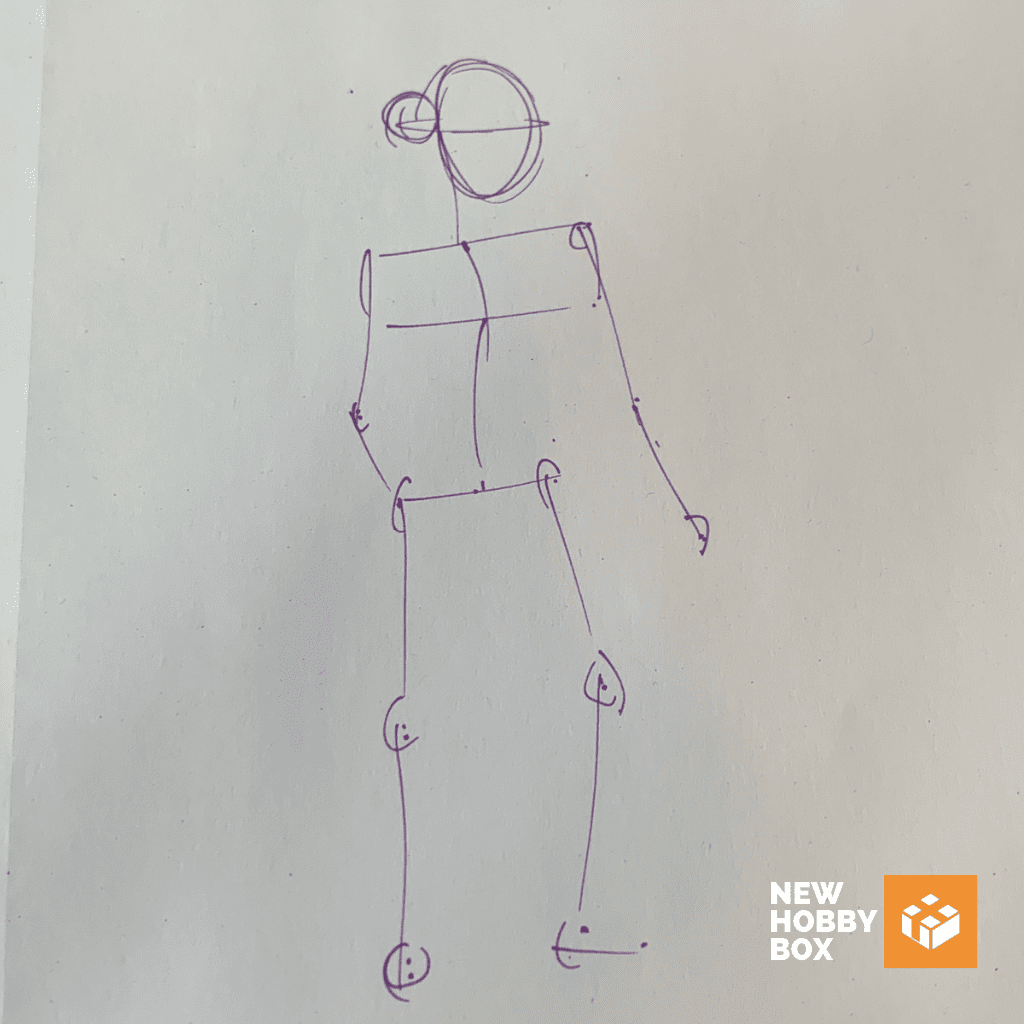
- Add Details Later: Taking on intricate, detailed drawings straight off the bat is like trying to run a marathon without any training. It’s tough, and not very fun. Instead, start simple. Draw some basic shapes and objects, and build up your skills from there. You’ll gain confidence with every line you draw and every shadow you shade.
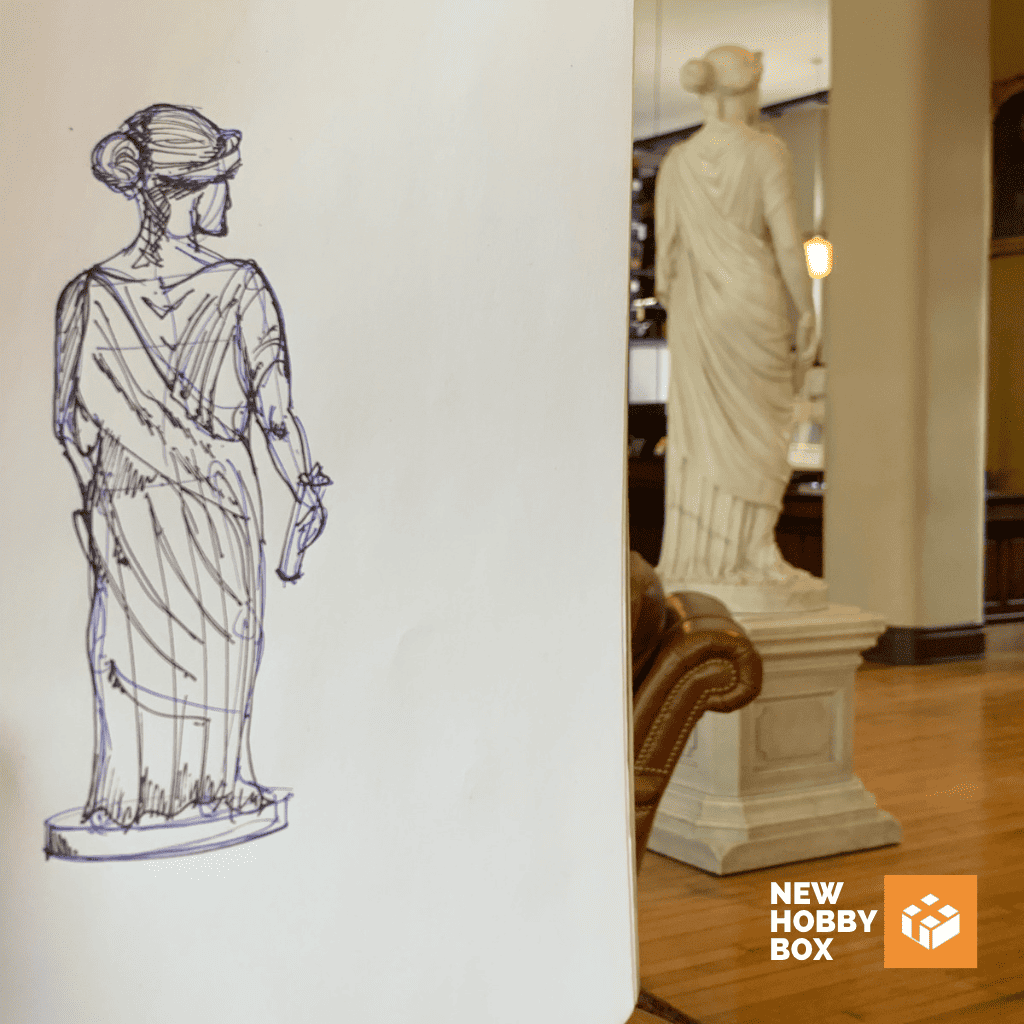
- Find Helpful Resources: There’s no shame in getting a bit of help along the way! Drawing classes, online tutorials, and of course New Hobby Box, and even those ‘how-to’ books gathering dust on your bookshelf, they’re all solid gold resources.
HOW DRAWING INTERSECTS OTHER HOBBIES
The world of drawing doesn’t just exist within the confines of a sketchpad – it weaves itself seamlessly into a variety of other hobbies, serving as a trusty sidekick. For instance, if you’re into DIY projects, a good drawing can be your blueprint. It helps you visualize the end product and work out the kinks before you even pick up a tool. That shelf you’ve been planning to build? A sketch can save you from ending up with a crooked mess.
Then there’s the world of scrimshaw and wood burning. Drawing takes center stage in these hobbies. In scrimshaw, you’re etching intricate designs onto faux ivory or bone, while in wood burning, you’re drawing with fire, literally. Your art becomes part of the object, turning a plain piece of wood or bone into a work of art.
Let’s not forget about travel and journaling. Imagine you’re soaking up the sun in a quaint little cafe in Paris, or marveling at the hustle and bustle of a Tokyo street. Sure, you could snap a photo, but why not sketch the scene? Drawing helps you capture not just the sights, but the feelings and memories of that moment. Every time you revisit your sketch, it’s like taking a mini vacation all over again.
So, if you’ve been thinking about picking up a pencil, why wait? Not only will you gain a new hobby, but you’ll also add a dash of creativity to your other interests.
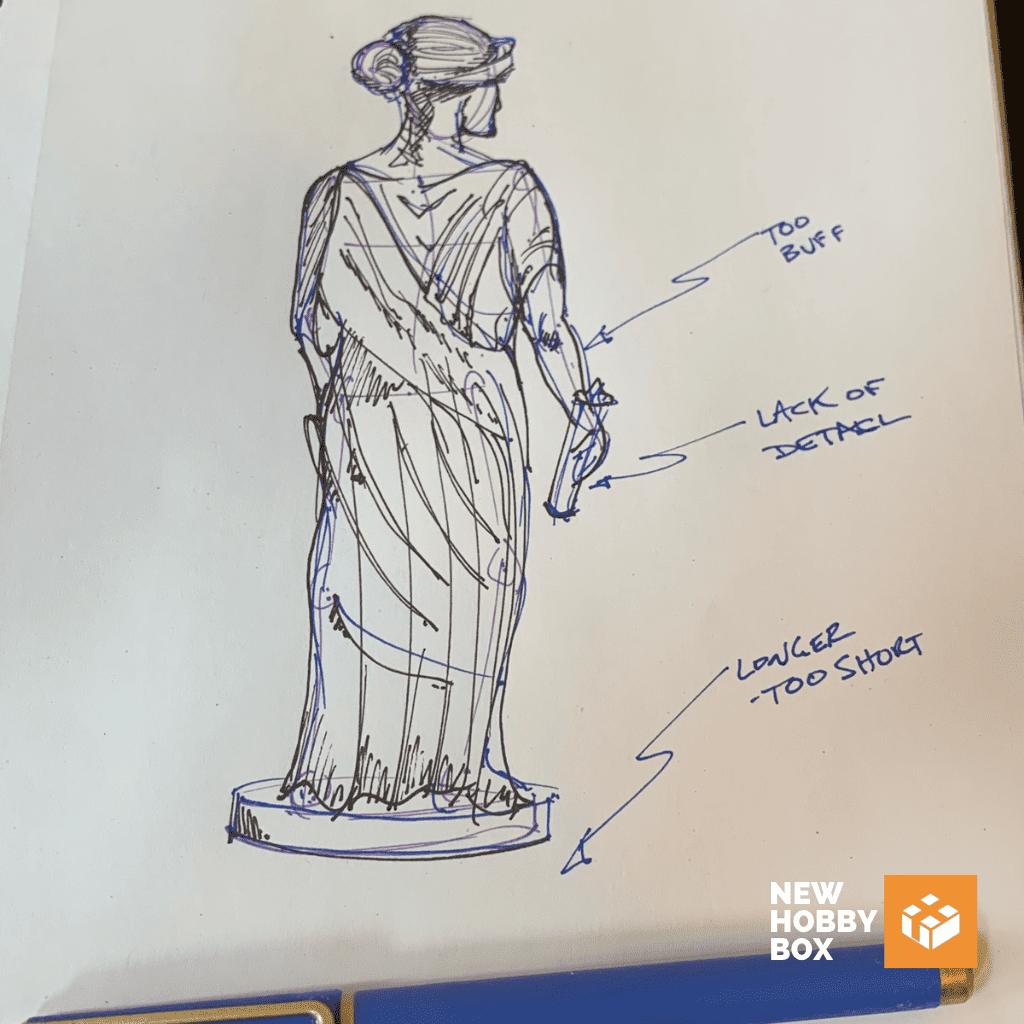
EMBRACE DRAWING AS A HOBBY, YOU WON’T REGRET IT
Drawing is not just a hobby, even though the heading above might strongly suggest this. It’s a form of art and an incredible medium for self-expression. Each stroke of your pencil, every line, and shade you create is a testament to your unique perspective. Drawing allows you to put your thoughts and emotions onto paper in a way that words might not be able to capture. It’s your own creative language that can translate the world around you and the world within you.
It can be daunting at first. But remember, the most important thing is to pick up that pencil and make your first mark. You might surprise yourself. The beauty of drawing lies not just in the result, but also in the process. It’s about finding joy in every line and every sketch, and the thrill of seeing your thoughts come to life. So, go ahead, and give drawing a shot. Embrace it as a hobby, use it as a means of self-expression, and let it take your other hobbies to the next level.
Happy Hobbying,
